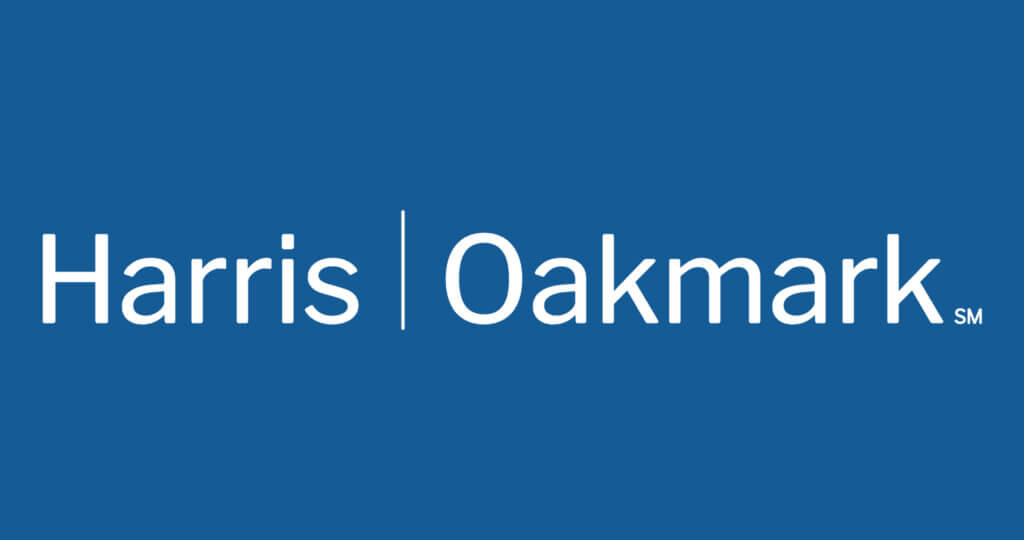Oakmark International Small Cap Fund – Investor Class
Average Annual Total Returns 06/30/21
Since Inception 11/01/95 9.51%
10-year 7.11%
5-year 11.98%
1-year 63.85%
3-month 7.64%
Gross Expense Ratio: 1.39%
Net Expense Ratio: 1.37%
Expense ratios are based on estimated amounts for the current fiscal year; actual expenses may vary.
The net expense ratio reflects a contractual advisory fee waiver agreement through January 27, 2022.
Past performance is no guarantee of future results. The performance data quoted represents past performance. Current performance may be lower or higher than the performance data quoted. The investment return and principal value vary so that an investor’s shares when redeemed may be worth more or less than the original cost. To obtain the most recent month-end performance data, view it here.
The Oakmark International Small Cap Fund returned 7.6% for the quarter ending June 30, outperforming the MSCI World ex U.S. Small Cap Index, which returned 4.8% for the same period. Since its November 1995 inception, the Fund has returned an average of 9.5% per year.
Markets continued to perform strongly during the second quarter due to accelerated vaccine rollouts, which enabled further re-openings and boosted the economic recovery. Our bottom-up stock selection has resulted in a portfolio that favors more economically sensitive sectors, which have benefited from the improving economic environment. The Fund’s industrial and financials exposures were the largest contributors to performance during the quarter. On a country basis, the Fund’s U.K. holdings were the biggest contributors to performance. As we’ve written about in past letters, our overweight position in the U.K. has negatively impacted performance in recent years as uncertainty around Brexit caused some investors to avoid the region, and a number of our holdings experienced significant multiple de-ratings. With Brexit now resolved and the U.K. having one of the fastest vaccine rollouts globally, investors are paying greater attention to the region. Coupled with strong underlying results from a number of our portfolio companies, 6 of the top 11 contributors in the quarter were U.K. based (LSL, Convatec, Equiniti, Travis Perkins, St. James Place, Pagegroup).
LSL Property Services was a top contributor for the quarter. LSL is a U.K. estate agent that also has operations in survey (appraisals for lenders) and finance services (mortgage and insurance originations to home buyers). During the quarter, LSL released full-year 2020 results, which were largely in line with our expectations. However, its 2021 guidance was well ahead of both our and market forecasts due to a robust recovery in the U.K. housing market. Revenue trends for LSL’s estate and survey business are closely tied to housing transactions, which are currently running approximately 50% above 2019 levels (aided by a holiday on stamp duty). We expect growth to moderate during the second half of 2021, but housing transactions in the U.K. are likely to increase by about 20% for the year versus 2019 levels, which would significantly increase the earnings power of LSL’s estate and survey businesses. Aside from the favorable macroeconomic backdrop, the company is also benefitting from its new CEO announcing a strategic shift that will direct increasingly more capital toward the financial services division, which is the highest quality business LSL owns. LSL also announced a joint venture with private equity firm Pollen Street Capital to acquire mortgage brokering operations and it signed a contract with real estate agent TPFG to manage its mortgage and protection business. As the financial services becomes an even larger portion of the business, we believe the market will likely ascribe a higher multiple to LSL.
Incitec Pivot, an Australian fertilizer and explosives manufacturer, was a top detractor for the period. In the first quarter of 2021, Incitec experienced some delays in reopening its Waggaman ammonia plant following a planned turnaround. The facility resumed operations in mid-April as management had expected. However, the company subsequently experienced some unexpected equipment issues, and the restart process halted on May 8, which is expected to further decrease full-year earnings by AUD 33-42 million. The timing of this additional disruption is especially disappointing due to the currently elevated price of ammonia. Incitec’s fiscal first-half results were also marred by the production issues at Waggaman as well as more minor issues at two ammonium nitrate (AN) plants in the U.S. However, the explosives business performed quite strongly as the U.S. proved rather resilient, despite Covid-19-induced declines on quarry and construction volumes and the structural decline of thermal coal. The Australian explosives business also performed quite well as technology sales offset planned price reductions and foundational contracts for the Moranbah AN plant reset. The company’s fertilizer business also generated improved earnings versus the prior year, thanks to higher commodity prices and strong plant reliability. While the collection of manufacturing issues is certainly frustrating, we believe the company is making progress in remedying them. Looking forward, Incitec’s financial performance should improve as a result of structural growth in explosives demand, higher commodity prices, cost reductions and improved manufacturing performance.
We initiated four new positions during the quarter:
- Nihon Unisys (Japan) is a system integrator (SI) company. Japan lags behind most developed nations in terms of digitizing its economy, which–combined with the country’s shortage of IT engineering talent–should bode well for the Japanese SI market’s structural growth. We were able to acquire shares of the company at a discount to our estimate of intrinsic value after management announced lower earnings guidance than the market had anticipated, which we consider to be transitory in nature. Over the long term, we believe the company can significantly expand margins and continue to generate healthy free cash flow.
- Nordic Entertainment (Sweden) is the largest pan-Nordic provider of premium TV content, with leading positions in pay-tv channels, over-the-top (OTT) streaming, free-to-air channels and content production. We were previous shareholders of Nordic Entertainment, having exited the position only last quarter. With the share price down nearly 30% versus our exit price and no significant changes to our view of the company’s intrinsic value, the stock again had the necessary upside to add back to the portfolio.
- SoftwareONE Holding (Switzerland) is a software and cloud technology solutions company that acts as a value added reseller (VAR). We believe VAR is an appealing business model that is poised to grow alongside IT budgets and that offers strong cash conversion rates. The company’s share price came under pressure when it indicated a desire to expand its services offerings during its annual earnings release. While additional services will pressure margins in the short term and lead to some near-term downward earnings revisions, we believe a well-executed expansion could strengthen the company’s relationships with its customer base and enhance the company’s value over the next three to five years.
- Talanx (Germany) is an insurer that operates in reinsurance (through Hannover Re), commercial non-life insurance globally (Industrial Lines), and retail insurance operations in Germany, Brazil, Mexico, Chile, Poland, Italy and Turkey. The most significant source of value at Talanx is its 50.2% stake in Hannover Re, regarded as the premium operator in the reinsurance market, which we believe is in the early stages of a favorable pricing cycle. Furthermore, Talanx’s fully owned Industrial Lines business has undergone significant restructuring in recent years, which should support better financial performance.
We also received a fifth new position–Wickes Group–as the result of a spin-off to shareholders from Travis Perkins. Wickes is the second largest do-it-yourself retailer in the U.K. Because Wickes is primarily consumer-focused while Travis is trade-focused, there has historically been little overlap between the two businesses, so we support the separation. Although we believe Travis is a higher quality asset than Wickes, we think Wickes currently offers significant upside potential since recent improvements in the U.K. housing market have not yet been reflected in its share price.
We sold two positions during the second quarter: Bucher Industries, a Swiss-headquartered manufacturer of agricultural, hydraulic and municipal equipment, and DSV Panalpina, a Danish freight forwarder. Both companies’ share prices reached our estimates of intrinsic value.
Geographically, we ended the quarter with approximately 72% of our holdings in Europe and the U.K., 11% in Asia, and 8% in Australasia. The remaining positions are in the Americas with 6% in Latin America (Mexico) and 3% in North America (Canada). We believe the Swiss franc remains overvalued versus the U.S. dollar, and we ended June with hedges on 12% of the Fund’s franc exposure.
We appreciate your ongoing support and are excited about the Fund’s position heading into fiscal year end.
The securities mentioned above comprise the following percentages of the Oakmark International Small Cap Fund’s total net assets as of 06/30/21: Bucher Industries 0%, ConvaTec Group 2.0%, DSV Panalpina 0%, Equiniti Group 0.4%, Incitec Pivot 2.5%, LSL Property Services 1.6%, Nihon Unisys 0.3%, Nordic Entertainment Cl B 0.5%, PageGroup 1.1%, SoftwareONE Holding 1.2%, St James’s Place 2.0%, Talanx 1.8%, Travis Perkins 2.2% and Wickes Group 0.5%. Portfolio holdings are subject to change without notice and are not intended as recommendations of individual stocks.
The MSCI World ex US Small Cap Index (Net) is designed to measure performance of small-cap stocks across 22 of 23 Developed Markets (excluding the United States). The index covers approximately 14% of the free float-adjusted market capitalization in each country. This benchmark calculates reinvested dividends net of withholding taxes. This index is unmanaged and investors cannot invest directly in this index.
The Fund’s portfolio tends to be invested in a relatively small number of stocks. As a result, the appreciation or depreciation of any one security held by the Fund will have a greater impact on the Fund’s net asset value than it would if the Fund invested in a larger number of securities. Although that strategy has the potential to generate attractive returns over time, it also increases the Fund’s volatility.
The stocks of smaller companies often involve more risk than the stocks of larger companies. Stocks of small companies tend to be more volatile and have a smaller public market than stocks of larger companies. Small companies may have a shorter history of operations than larger companies, may not have as great an ability to raise additional capital and may have a less diversified product line, making them more susceptible to market pressure.
Investing in foreign securities presents risks that in some ways may be greater than U.S. investments. Those risks include: currency fluctuation; different regulation, accounting standards, trading practices and levels of available information; generally higher transaction costs; and political risks.
The percentages of hedge exposure of each foreign currency are calculated by dividing the market value of all same-currency forward contracts by the market value of the underlying equity exposure to that currency.
The information, data, analyses, and opinions presented herein (including current investment themes, the portfolio managers’ research and investment process, and portfolio characteristics) are for informational purposes only and represent the investments and views of the portfolio managers and Harris Associates L.P. as of the date written and are subject to change and may change based on market and other conditions and without notice. This content is not a recommendation of or an offer to buy or sell a security and is not warranted to be correct, complete or accurate.
Certain comments herein are based on current expectations and are considered “forward-looking statements”. These forward looking statements reflect assumptions and analyses made by the portfolio managers and Harris Associates L.P. based on their experience and perception of historical trends, current conditions, expected future developments, and other factors they believe are relevant. Actual future results are subject to a number of investment and other risks and may prove to be different from expectations. Readers are cautioned not to place undue reliance on the forward-looking statements.
All information provided is as of 06/30/2021 unless otherwise specified.








